News
-
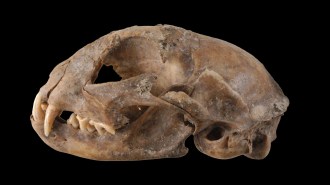 Animals
AnimalsAncient DNA rewrites the tale of when and how cats left Africa
Cats were domesticated in North Africa, but spread to Europe only about 2,000 years ago. Earlier reports of “house” cats were wild cats.
By Jake Buehler -
 Astronomy
AstronomyDark matter ‘nuggets’ could explain the Milky Way’s mysterious glow
A mysterious excess of far-ultraviolet light seen across the Milky Way could come from the annihilation of clumpy dark matter.
-
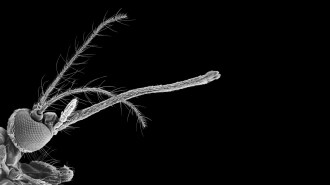 Tech
TechMosquitoes use it to suck blood. Researchers used it to 3-D print
A mosquito proboscis repurposed as a 3-D printing nozzle can print filaments around 20 micrometers wide, half the width of a fine human hair.
By Payal Dhar -
 Earth
EarthEarly Earth’s belly held onto its water
When the early Earth’s magma ocean crystallized 4.4 billion years ago, the deep mantle trapped an ocean’s worth of water, scientists say.
-
 Animals
AnimalsBats might be the next bird flu wild card
Finding that vampire bats along Peru’s coast carried H5N1 antibodies raises concerns that multiple bat species could become reservoirs for the virus.
By Jane Qiu -
 Archaeology
ArchaeologyNeandertals mastered fire-making tools 400,000 years ago
Archaeologists found flint, iron pyrite to strike it and sediments where a fire was probably built several times at an ancient site in England.
By Jay Bennett -
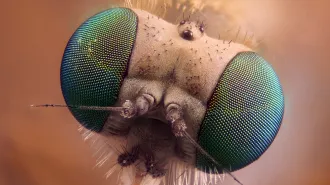 Life
LifeFrom viruses to elephants, nature thrives on tiled patterns
A compilation of 100 examples of biological tilings shows how repeated natural motifs enhance strength, flexibility and other key functions.
By Nikk Ogasa -
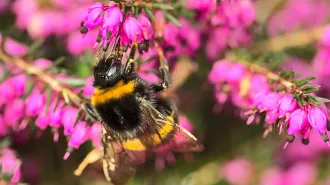 Animals
AnimalsTrucked-in honeybees may edge out bigger bumblebee foragers
The finding could guide beekeepers to keep hives out of most vulnerable areas of the Irish heathlands.
-
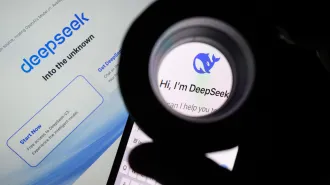 Artificial Intelligence
Artificial IntelligenceA look under the hood of DeepSeek’s AI models doesn’t provide all the answers
A peer-reviewed paper about Chinese startup DeepSeek's models explains their training approach but not how they work through intermediate steps.
By Ananya -
 Psychology
PsychologySome irritability is normal. Here’s when it’s not
Irritability is a normal response to frustrations, but it can sometimes signal an underlying mental health disorder, like depression or anxiety.
-
 Animals
AnimalsHuge relatives of white sharks lived earlier than thought
Lamniform sharks such as great whites and tiger sharks are famous for their size. The first such giants evolved 15 million years earlier than thought.
By Jake Buehler -
 Health & Medicine
Health & MedicineGLP-1 drugs failed to slow Alzheimer’s in two big clinical trials
Tantalizing results from small trials and anecdotes raised hopes that drugs like Ozempic could help. Despite setbacks, researchers aren’t giving up yet.
By Meghan Rosen